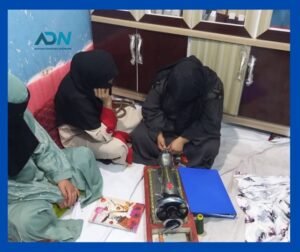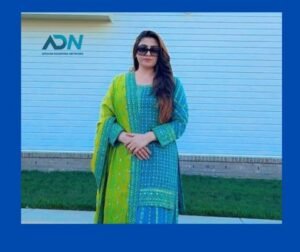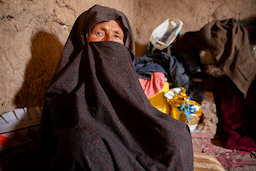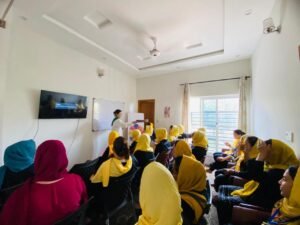UN Faces Backlash Over Exclusion of Afghan Women in Doha Talks
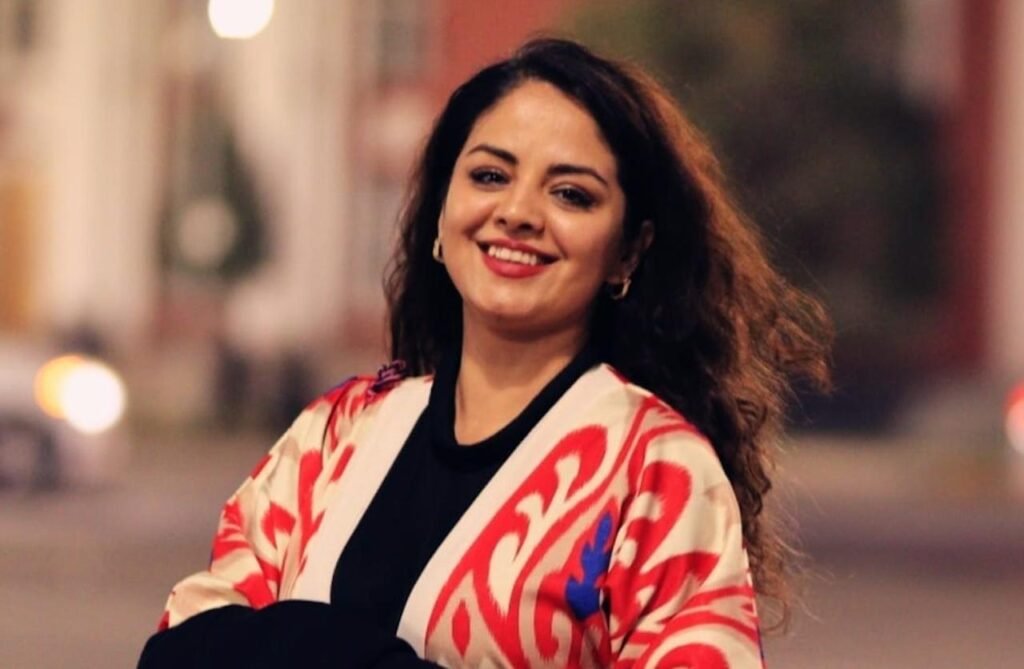
Photo @private
By Tahmina Salik
The Third Doha Meeting, convened by the United Nations (UN) on June 30, 2024, in Doha, represents a crucial juncture in addressing Afghanistan’s future. Since the Taliban’s takeover in August 2021, this gathering seeks to facilitate dialogue among key stakeholders. However, as the meeting approaches, it becomes clear that significant challenges lie ahead, particularly regarding the marginalization of Afghan women and civil society.
Unlike the first Doha meeting, which was attended by special envoys, and the second, where the Taliban refused to participate due to unmet demands, this third meeting has taken a controversial turn. The Taliban stipulated their participation on the condition that their demands be met, leading the UN to concede by deciding not to invite Afghan women and civil society representatives. This concession has resulted in the Taliban’s agreement to attend, casting a shadow over the inclusivity and effectiveness of the dialogue.
The Context: Afghanistan’s Fragile Situation
The situation of women and human rights in Afghanistan is not just a local issue but an international one that requires immediate attention and action from the global community.
What Are Human Rights?
While the discussion is far from over, when we talk about human rights violations in Afghanistan, we refer to the most basic, fundamental, and natural human rights outlined in the Universal Declaration of Human Rights, adopted by the United Nations in Paris in 1948 and recognized during various political periods in Afghanistan.
These rights include the right to life, liberty, freedom from slavery, fair trial, freedom of expression, freedom of thought and belief, freedom of religion, freedom from torture, the right to marry by choice, sexual orientation and gender identity rights, the right to participate in the country’s administration, the right to social security, the right to work, and the right to education.
All these rights must be guaranteed by law.
I wish someone would step forward and at least point out which of these rights are respected in Afghanistan. Or better yet, which one is not violated?
The human rights of the entire nation have been trampled upon. No one in that country is “born free.” They cannot express their thoughts and beliefs. They do not have freedom of religion. Marriages are forced, and we cannot even talk about sexual and gender identity rights. The right to work, social security, and education are the same rights for which many have been tortured and imprisoned.
The Plight of Women and Girls
Women and girls, in addition to all these violations, have lost the right to be seen and heard, to walk without a male guardian, to get an education, to work outside the home, to travel, to enjoy recreational activities and parks, to go to baths and maintain hygiene, and even to breathe without a mask.
These restrictions have significantly increased violence against women and girls. How can one imagine living in a country where arts such as painting, music, theater, cinema, and sculpture are forbidden? (I heard that in Kandahar, photography of any living being is prohibited.) Or where people have no choice in what to wear or how to groom their hair and beards, with countless other examples that sound more like a grim joke than the reality of a society of over thirty million in the 21st century and the age of artificial intelligence!
These facts highlight the bitter truth that the Taliban have systematically restricted women’s and girls’ rights and stifled every aspect of their lives. UN experts have suggested that these restrictions might be recognized as “gender apartheid.” Richard Bennett The Special Rapporteur on the situation of human rights in Afghanistan released a report (A/HRC/56/25) on Tuesday, ahead of the 56th session of the Human Rights Council taking place from June 18 to July 12, 2024, where the Special Rapporteur will address the findings.
The report sheds light on the escalating discrimination against Afghan women and girls under Taliban rule. His findings highlight the severe rollback of women’s and girls’ rights, reprisals against opponents, attacks on minorities, and media clampdowns. The report underscores the urgent need for accountability and action to address the systemic gender oppression perpetuated by the Taliban.
The Global Community’s Indifference
The situation of human rights and, especially, the horrific living conditions of women in Afghanistan are so clear that only those with blindfolds cannot see, and only those with cotton in their ears cannot hear. We will burn these cotton plugs with fiery screams and remove the black glasses from the eyes of the blind.
The Doha Meetings: A Platform for Deliberation
The Doha meetings serve as a platform for dialogue, bringing together diverse actors, including the Taliban. However, the focus on the Taliban’s participation over the engagement of Afghan women is a betrayal and UN by bowing to Taliban´s demand sacrifices its integrity and undermines the broader goals of justice and equality. This approach risks normalizing the Taliban’s oppressive regime while sidelining crucial human rights concerns.
Afghan Women: Silenced Voices
Afghan women have borne the brunt of the Taliban’s draconian measures. Their rights have been systematically curtailed, and their voices stifled. Excluding them from the Doha meeting sends a disheartening message. Their perspectives are expendable.
As I consider Afghanistan’s future, I must recognize that Afghan women are not mere victims; they are agents of change. The international community’s failure to amplify their voices is a grave oversight.
Civil Society’s Role
Civil society—comprising NGOs, activists, and grassroots organizations—plays a pivotal role in shaping Afghanistan’s trajectory. These groups bridge the gap between official negotiations and ground realities. Their insights, drawn from lived experiences, offer a nuanced understanding of the challenges ahead. Yet, civil society remains marginalized in the Doha process. This marginalization hinders the creation of a holistic and inclusive approach to Afghanistan’s future.
The Credibility Test
The Doha meeting is a litmus test for the UN’s credibility. The international community’s slow normalization of the Taliban, coupled with a focus on geopolitical issues over human rights, is troubling. The UN must balance the need to engage in dialogue with the Taliban while firmly prioritizing human rights. Normalizing the Taliban’s actions risks validating their oppressive regime. Instead, I believe we should emphasize accountability and insist on meaningful participation from Afghan women and civil society. This is not merely a diplomatic challenge but a moral imperative.
Conclusion: Beyond the Meeting
As the Doha meeting unfolds, we must keep Afghan women at the forefront. They hold the keys to a more inclusive, stable Afghanistan. Negotiations should not merely focus on power-sharing. They should prioritize justice, equality, and the empowerment of marginalized voices. The Taliban may be part of Afghanistan’s present, but they don´t define its future.
In summary, the Third Doha Meeting is a critical test of the international community’s commitment to human rights and justice in Afghanistan. By amplifying Afghan women’s voices and engaging civil society, we can chart a path toward a more just and resilient Afghanistan. It is imperative that the UN and the global community refocus their efforts on empowering those who have been silenced and ensuring that human rights take precedence over geopolitical maneuvering.
Our duty as enlightened humans is to pressure the Taliban and other power groups in Afghanistan to transition to a democratic regime that recognizes the human rights of all, especially women and girls. To achieve this goal, the Afghan women and girls need support. Non-governmental organizations and human rights activists in Afghanistan require greater support from the international community. Furthermore, international awareness campaigns should be encouraged to increase understanding of the situation of women in Afghanistan.
We must not let the courageous women who stand bravely against oppression and are symbols of resistance and hope be forgotten. Despite all restrictions and hardships, they continue to raise their voices and fight for their rights. We must inject their stories into the global consciousness to ensure.
Tahmina Salik is the chairwoman of Empowerment For Her.
Note: The contents of the article are of sole responsibility of the author. Afghan Diaspora Network will not be responsible for any inaccurate or incorrect statement in the articles.


